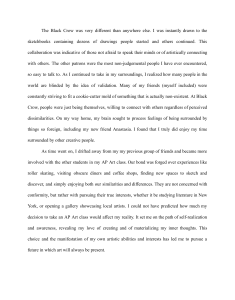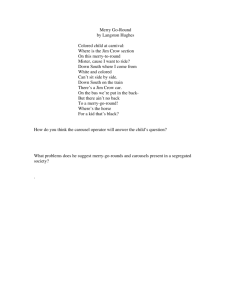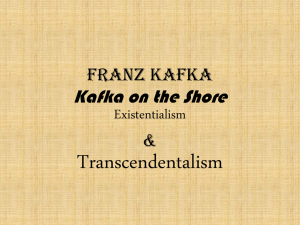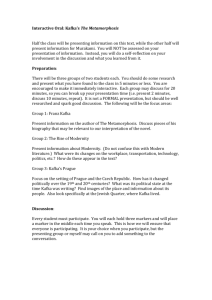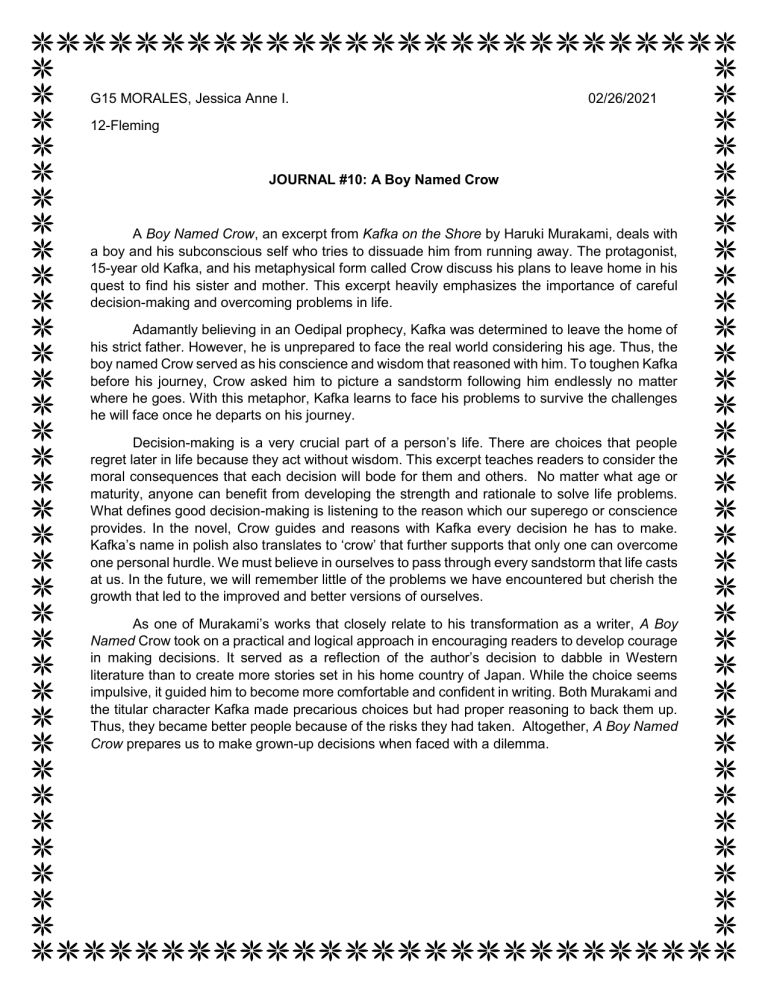
G15 MORALES, Jessica Anne I. 02/26/2021 12-Fleming JOURNAL #10: A Boy Named Crow A Boy Named Crow, an excerpt from Kafka on the Shore by Haruki Murakami, deals with a boy and his subconscious self who tries to dissuade him from running away. The protagonist, 15-year old Kafka, and his metaphysical form called Crow discuss his plans to leave home in his quest to find his sister and mother. This excerpt heavily emphasizes the importance of careful decision-making and overcoming problems in life. Adamantly believing in an Oedipal prophecy, Kafka was determined to leave the home of his strict father. However, he is unprepared to face the real world considering his age. Thus, the boy named Crow served as his conscience and wisdom that reasoned with him. To toughen Kafka before his journey, Crow asked him to picture a sandstorm following him endlessly no matter where he goes. With this metaphor, Kafka learns to face his problems to survive the challenges he will face once he departs on his journey. Decision-making is a very crucial part of a person’s life. There are choices that people regret later in life because they act without wisdom. This excerpt teaches readers to consider the moral consequences that each decision will bode for them and others. No matter what age or maturity, anyone can benefit from developing the strength and rationale to solve life problems. What defines good decision-making is listening to the reason which our superego or conscience provides. In the novel, Crow guides and reasons with Kafka every decision he has to make. Kafka’s name in polish also translates to ‘crow’ that further supports that only one can overcome one personal hurdle. We must believe in ourselves to pass through every sandstorm that life casts at us. In the future, we will remember little of the problems we have encountered but cherish the growth that led to the improved and better versions of ourselves. As one of Murakami’s works that closely relate to his transformation as a writer, A Boy Named Crow took on a practical and logical approach in encouraging readers to develop courage in making decisions. It served as a reflection of the author’s decision to dabble in Western literature than to create more stories set in his home country of Japan. While the choice seems impulsive, it guided him to become more comfortable and confident in writing. Both Murakami and the titular character Kafka made precarious choices but had proper reasoning to back them up. Thus, they became better people because of the risks they had taken. Altogether, A Boy Named Crow prepares us to make grown-up decisions when faced with a dilemma.
